Know Your Why, Set Your Goals

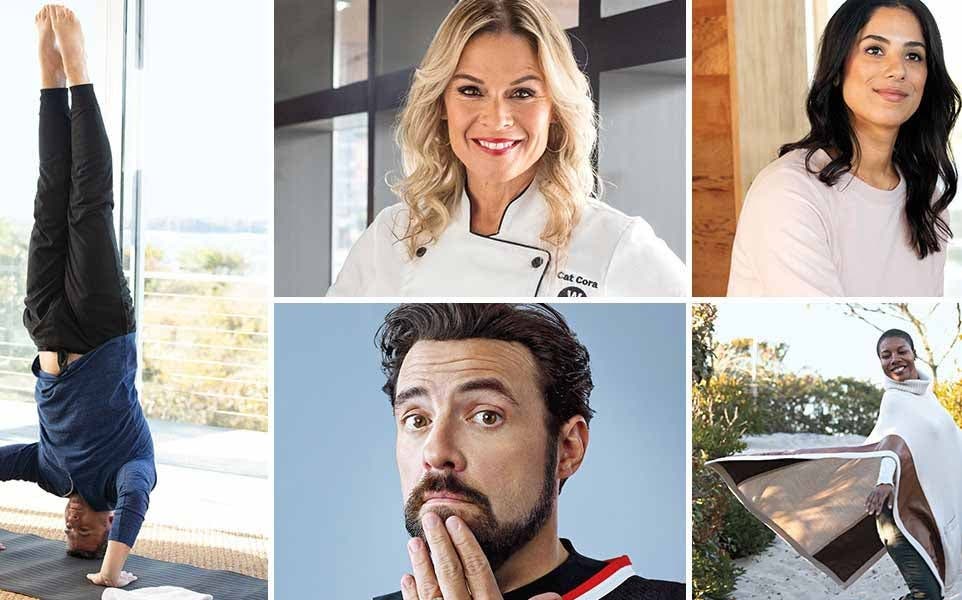
Love ’em or hate ’em, goals are on everyone’s mind this time of year. Hordes of us are making resolutions, often with reservations, because goals have a funny way of turning into fails.
Why is that, anyway?
Decades’ worth of research now shows that it’s often not enough to declare a goal, large or small, and take life-altering steps to reach it. Turns out, there’s a subtle art to goal-setting and achievement (hey, if it were obvious, the world would be full of successful, nonsmoking entrepreneurs, fit and happy in their clutter-free homes). To help you master your universe, our experts have cutting-edge advice about how to reach what you’re aiming for and then build into the future.
The one step almost all of them agree on: Find your why. It may be the most important factor in every journey, so we’ve started the year asking our WW ambassadors and some of our members to share their why. As well as tips on how to determine your why and your goals.

|
MY WHY
For me, the why is accountability and health. The older you get, the more you recognize and have real appreciation for every day that you wake up with a healthy mind and a healthy body.
Oprah
|
How do you figure out your why, exactly?
For Simon Sinek, who wrote the bestselling Start with Why and has one of the most popular TED Talks of all time on the same subject, it begins with stepping away from what you want to achieve, and looking deeper. “You may have a goal like running a half marathon or getting a new job, but usually, the what isn’t inspiring enough. Knowing why you want this thing so badly connects you to a much bigger motivation.”
Sinek says the most powerful whys aren’t just about you, yourself, but also creating value for other people. “There’s an enormous difference between a what, maybe wanting to lose 50 pounds, and a why, which might be showing family members they can take control of their health, too.”
 |
MY WHY
I want to help prevent health issues for my husband and me, now and in the future.
Emilie P., WW member
|
It works, he says, because it’s easier to back off goals that are just about you. “But when you can turn them into an act of service, it’s amazing how much more inspired you feel,” he says. “That’s the big insight from support groups like Alcoholics Anonymous—the 12th step is about helping other people to recover.” Finding a larger community—which could mean your family, friends, colleagues, or a group like WW—can power up your commitment.
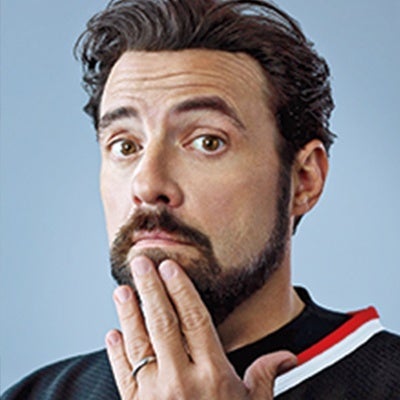
|
MY WHY
My why is to remain alive. After my heart attack, I made massive lifestyle changes because my old habits had literally threatened my life. So now I think about what I eat and move my body more than I ever had before, in an effort to stay above ground. It’s nicer up here.
Kevin Smith, filmmaker, director, actor and WW member and ambassador
|
After you’ve connected your goal to a bigger why, rely on smart hacks to reach the finish line. Try one, some, or all of these mental tricks to make getting there easier and more joyful.
Small steps
Once a goal is clear in your mind, start thinking about the same four W’s that help WW members lose weight: What you’ll do to achieve it, When you’ll do it, Where, and with Whom (if anyone). So instead of saying “I’m going to get in shape this year,” you’d say, “I’m going to jog around my local reservoir, three mornings a week with my neighbor.” Getting granular like this is a proven tactic, and works well because specific strategies to overcoming obstacles beat vague intentions, no matter which area of your life you’re trying to improve.
People who focus on process, breaking goals down into smaller steps, are more likely to accomplish what they set out to do, says Anastasia Kitsantas, PhD, an educational psychology researcher at George Mason University in Fairfax, VA. “They tend to show more effort, persistence, and enthusiasm.” Conversely, when you focus on the end result prematurely and then fail, “That hurts your confidence and you blame your inability,” Kitsantis explains. “You say, ‘I’m not good at that,’ and give up. People focused on the process are more likely to say, ‘My strategy isn’t working. I better try something else.’ ”
Take Charge
It’s essential to think of goals with steps that let you have some control, instead of outcomes, which may be out of your grasp, says Allison Grupski, PhD, director of behavior change for WW. “An outcome goal—like losing 10 pounds this month—may not be entirely up to you,” she says. “You may do everything right, and not get that exact result. But you can say, ‘I’ll walk five times this week, and switch to fruit and veggies as my after-dinner snacks,’ and feel great when you follow through.”
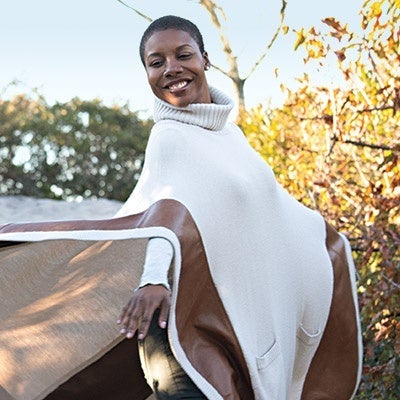
|
MY WHY
I care deeply about the environment, and being healthy will let me connect with nature more, which helps me mentally and physically.
Kamaria W., WW member
|
Try the trifecta
Research from Dominican University in River Forest, IL, recently tested the idea of combining a few different approaches to goal-setting, with exciting results. They found that three actions, done separately, help people achieve their aims more effectively than just thinking about them:
- Write down a goal.
- Commit to it with specific action plans (see “Small Steps” above, and remember to choose ones that you control).
- Regularly share progress with someone else.
When all three of these tactics are done together, it’s practically magic: The majority of people who went with the trifecta got where they wanted to be, compared with just 43 percent who simply thought about their goal. (Other research backs up the write-it-down concept, by the way. “When people write down a salary amount and put it in their pocket before a raise negotiation, they are more likely to get what they ask for,” says David Asch, MD, a professor of medicine at the University of Pennsylvania’s Perelman School of Medicine and the Wharton School. “It’s a small way of increasing commitment.”)
Think, WWASD (What would a sloth do?)
The most effective hacks work by finding the path of least resistance, so that doing the right thing is also the easiest choice. Instead of joining the fancy gym that’s 20 minutes away, you join the plain-Jane gym next door. You use automatic deductions to boost savings. You premake that healthy breakfast, so it’s the first thing you see in the morning. One of Sinek’s go-to fitness strategies is a goal of one push-up a day. “I promise myself I’ll do that one,” he says. “But once I’m down there, I usually find I can do 10 or more. Mentally, that’s so much better for me than saying I’ll do 100 in a day, and doing zero.”
Add, don’t subtract
Positive movement is generally easier than restraint, Grupski says, so it can help to replace a less-than-healthy habit that feels good with a more healthy behavior that’s also satisfying. “Not spending money, not smoking, or not eating at night is hard. But looking for additive behavior is empowering.” It feels much better to replace Internet shopping with online puzzles, cigarettes with knitting, or ice cream with frozen fruit.
Pay up
Behavioral economists, who look for ways money can nudge people toward healthier choices, say financial incentives help. A University of Pennsylvania study, for instance, recruited a group of overweight university employees, and tried to coax them into walking 7,000 steps a day. Researchers found that virtually rewarding them with $1.40 for each day they met that step requirement inspired participants to get moving. But giving them a virtual allowance of $42 a month and then deducting that same amount—$1.40 a day—when they didn’t walk their steps was even more motivating.
“People are irrational in very predictable ways,” says Asch, one of the researchers who worked on the study. “It doesn’t make sense, but in just about any situation, losses loom larger than gains.”
Apps make it easy to do: Lazy Jar (lazyjar.com), for example, links your Fitbit to your “security deposit” fund. You set up goals, and every time you fail to meet a weekly target, it makes a deduction, 80 percent of which goes to fund childhood cancer research.
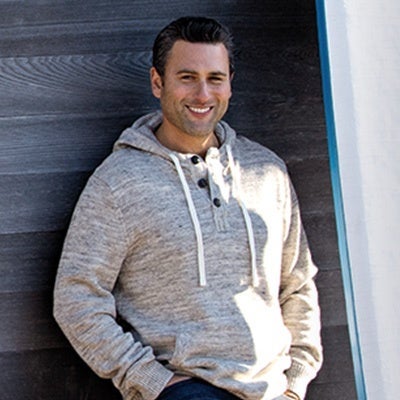
|
MY WHY
I want to have a balance between my professional life and my personal life so that I can be a better CEO at work and a better husband at home.
Mike W., WW member
|
Recall past glories
Feeling offtrack? Experts say it helps to think back to goals you’ve achieved before—a work success, a personal best. How did you do it? What strategies worked? Those memories do more than boost your confidence; reflecting on the skills that helped you master a challenge in one area of your life can reveal how those same abilities translate to other realms. Maybe you’ve never done a triathlon before. But with a little active reminiscing, you’ll see the same planning skills that make you the force behind every family reunion and office holiday party will pay off in developing a solid training schedule.
A fun variation? Try replacing your old-school “to-do” list with a “done” list (there’s even a handy free app called Done). It’s a reminder of how competent you are: Heck yeah, you get stuff done!
Do regular reality checks
Reaching any goal requires self-monitoring and self-evaluation, says Kitsantas, whose studies have focused on mastering everything from a yoga headstand to stronger study habits. “You need to look at the data and check your progress. Maybe you’re not any nearer. But because you are focusing on process and strategy, not just outcome, you can say, ‘OK, that headstand still isn’t even close. I need a new tactic. What else can I try?’ ”
Self-reflection is essential, so schedule regular check-ins. Maybe you take a look at your checking account every week to track your progress, or record each workout. Then ask yourself why you think you did well or poorly. Do you feel satisfied with your progress? What might you do differently?
And while it makes sense to establish some sort of timeline, Sinek says it doesn’t pay to “falsely saddle yourself with arbitrary dates. For me, it’s much more about momentum. The more helpful question is whether I am making progress on a goal, not whether I got there in three weeks, or six.”
Become a fan of failure
Failing doesn’t have to suck. Working to reframe minor defeats actually builds grit, a healthy kind of resilience that’s part passion, part persistence. Technology start-ups, for example, see failure as a given, and shift their focus to incremental improvements. (Some young companies even celebrate their failures!) So if you’re stalled, go back to your four W’s and ask yourself what obstacles knocked you off your game. Where did it happen? What might you do differently?
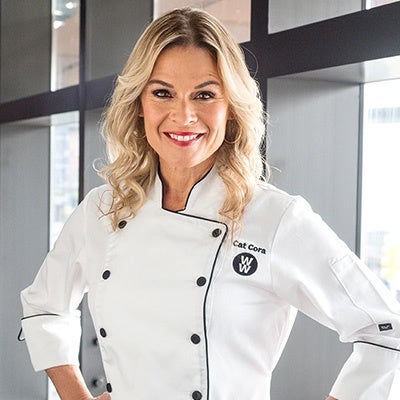
|
MY WHY
Having a why is essentially having a purpose. My why is to maintain a fit body, mind, and soul so that my family and I can thrive and be our best selves. It’s also to inspire my community to join us in living a healthy, clean lifestyle so they, too, can live life to the fullest.
Cat Cora, celebrity chef and WW ambassador
|
Know your next steps
Once you start to gain traction, don’t be surprised if you find yourself basking in a halo effect. “People often notice improvements in things they weren’t consciously working on,” Grupski says. Eating better may lead to exercising more, for instance. Eventually, this success may lead you to set new goals, but Grupski says most people do best when working on no more than two goals at a time.
As success gets closer, enjoy the euphoria and start thinking ahead. Post-goal letdown is real, and for some people, it’s like falling off a cliff: It’s one reason Olympic athletes are prone to depression after they’ve achieved their wildest dreams. “It also explains why many people, once they reach their weight target, respond with one celebratory calorie splurge after another, until they regain it all,” says Lisa D. Ordóñez, PhD, a management professor at the University of Arizona. “Without that goal, people can suddenly feel unmotivated.”
Sinek says post-goal balance is another reason your why is so important. “Once you’ve achieved Goal X, you can find new goals to further your why. You want to keep helping people, and once the satisfaction of that kicks in, you’ll want to expand and evolve that why. Maybe you started out thinking about friends and family, and are now ready to focus on co-workers or community. When we care about something bigger than ourselves, it’s the most beautiful thing in the world.”
